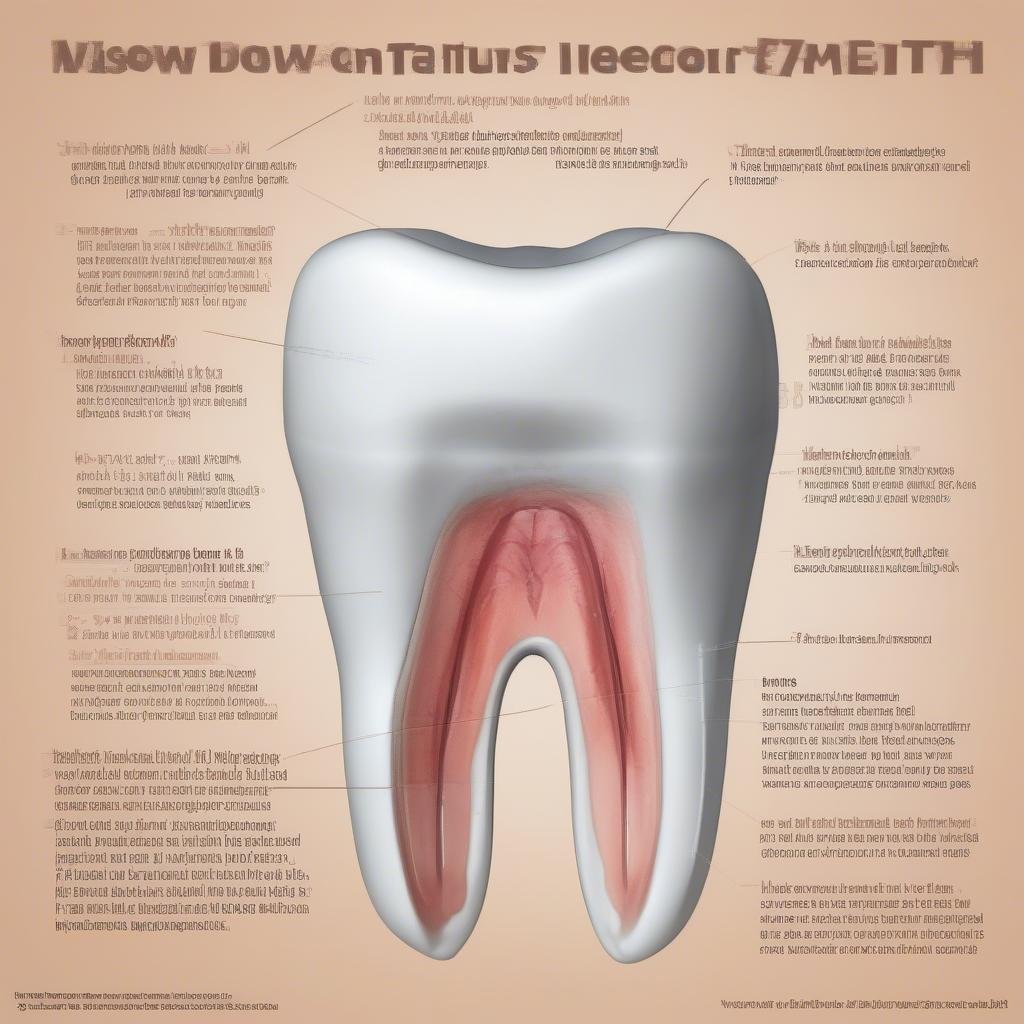Introduction
Wisdom teeth are those extra teeth at the back of your mouth that usually show up when you’re older, around your late teens or early twenties.
You might have heard some people talk about wisdom teeth as if they are a big deal, but don’t worry—they are just like your other teeth but come in a bit later.
Not everyone gets all their wisdom teeth, and some people don’t get them at all.
These teeth have an interesting name, but they don’t really make you wiser! Let’s dive into everything you need to know about wisdom teeth in a way that’s easy to understand.
What Are Wisdom Teeth?
Wisdom teeth are the last set of molars that grow at the back of your mouth.
Most people have four wisdom teeth: two on the top and two on the bottom.
They usually come in when you’re between 17 and 25 years old, but sometimes they can show up earlier or later.
Why Are They Called Wisdom Teeth?
You might wonder why they’re called “wisdom teeth.”
Well, they get their name because they come in when you’re older and “wiser.”
It’s just a funny way to describe the time they appear in your mouth.
Unlike baby teeth or your first adult teeth, wisdom teeth are the last to grow in.
Do You Really Need Wisdom Teeth?

The truth is, you don’t really need wisdom teeth to chew your food properly.
People used to need them long ago when diets were rougher, and teeth wore down quickly.
Now, with better dental care and softer foods, most people can get by just fine without them.
Problems with Wisdom Teeth
Sometimes, wisdom teeth can cause problems because there’s not enough room in your mouth.
When this happens, they might come in at an angle or get stuck under the gums.
This can cause pain, swelling, or infections, and sometimes dentists decide to remove them.
Signs Your Wisdom Teeth Are Coming In
Here are some signs that your wisdom teeth might be coming in:
- A feeling of pressure or pain at the back of your mouth.
- Swollen or tender gums where the wisdom teeth are pushing through.
- Jaw pain or stiffness when chewing.
- You might even see a small bump where the tooth is coming through.
Key Features of Wisdom Teeth
Here’s a table that breaks down the key features of wisdom teeth and what makes them unique:
| Feature | Description |
|---|---|
| Number of Teeth | Most people have four, but some have fewer or none. |
| Location | At the very back of the mouth, behind the molars. |
| Timing of Growth | Typically appear between ages 17 and 25. |
| Function | Used to be for chewing tough foods, but not essential today. |
| Common Issues | Can cause pain, crowding, or infections if there isn’t enough space. |
| Treatment | Often removed if they cause problems like pain, crowding, or infections. |
| Symptoms of Problems | Pain, swelling, or difficulty opening the mouth wide. |
| Care Tips | Good oral hygiene, regular dental check-ups, and sometimes extraction if they cause trouble. |
What Happens If Wisdom Teeth Don’t Come In Right?

If your wisdom teeth don’t have enough room, they might come in sideways or not at all.
This is called being “impacted.”
Impacted wisdom teeth can lead to other problems like infections, tooth decay, or even damage to nearby teeth.
Do All Wisdom Teeth Need to Be Removed?
Not all wisdom teeth need to be taken out.
If they come in straight and don’t cause any pain, you can keep them just like your other teeth.
Your dentist will check with X-rays to see if your wisdom teeth are growing in the right way.
How Are Wisdom Teeth Removed?
If your wisdom teeth need to come out, a dentist or oral surgeon will perform a procedure to remove them.
The process usually involves some numbing medicine so you won’t feel anything during the procedure.
Afterward, you’ll need to rest and eat soft foods while your mouth heals.
Taking Care of Your Mouth After Wisdom Teeth Removal

Taking care of your mouth after wisdom teeth removal is very important.
Here’s what you can do:
- Use an ice pack on your cheeks to reduce swelling.
- Eat soft foods like yogurt, soup, or mashed potatoes.
- Avoid using straws, as sucking can slow down the healing.
- Brush your teeth gently and avoid the area where the teeth were removed.
Tips for Keeping Wisdom Teeth Healthy
Even if your wisdom teeth don’t need to be removed, it’s still important to keep them clean.
Here are some tips:
- Brush all the way to the back of your mouth where your wisdom teeth are.
- Use floss or a water flosser to clean between your teeth.
- Visit your dentist regularly to check on your wisdom teeth.
FAQs About Wisdom Teeth
1. Do all kids get wisdom teeth?
Not everyone gets wisdom teeth. Some kids might get all four, while others might get fewer or none at all.
2. Why do wisdom teeth hurt when they come in?
Wisdom teeth can hurt because they’re pushing through the gums, or they may not have enough space, causing them to crowd or press against other teeth.
3. How do I know if my wisdom teeth need to be removed?
Your dentist will take X-rays to see if your wisdom teeth are growing in correctly.
If they are causing pain or crowding, they might suggest removal.
4. Is it scary to have wisdom teeth removed?
It might sound scary, but dentists use numbing medicine to make sure you don’t feel anything during the procedure.
Most kids are back to feeling great in just a few days!
5. What can I eat after having my wisdom teeth removed?
You can eat soft foods like applesauce, smoothies, yogurt, and mashed potatoes.
Just avoid crunchy or hard foods until your mouth heals.
Conclusion
Wisdom teeth are a part of growing up, but they don’t have to be scary.
Understanding what they are, how they work, and when they might need some attention makes everything easier.
Remember to listen to your dentist and take good care of your mouth, whether your wisdom teeth come in perfectly or need a little extra help.
Wisdom teeth are just another part of your smile’s journey—one that helps you learn more about how amazing and unique your body really is!
So next time someone talks about wisdom teeth, you’ll be the wise one who knows all about them!

